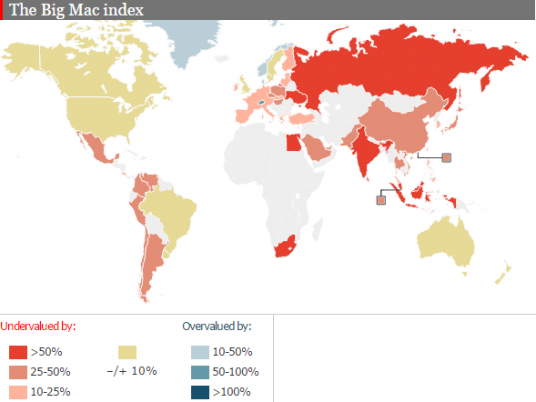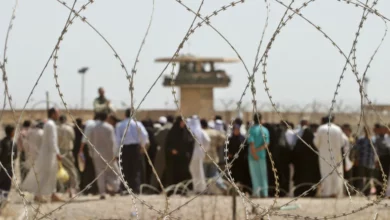
Egypt's ranking declined three places to be the seventh among the world’s cheapest countries according to a statistic comparing the cost of living at several countries to that in the USA, according to The Economist's Big Mac index .
In January 2015 living costs in Cairo was 51.9 percent cheaper than that in New York, Compared to 50.6 percent in July 2014, which means that the cost of living in Cairo raised 1.3 percent in 6 months.
The index, which is published twice a year, was started by the business publication in 1986 as a light-hearted guide to whether currencies are at their "correct" level.
It is based on the theory of purchasing-power parity (PPP). This is the notion that in the long run, exchange rates should move towards the rate that would equalize the prices of an identical basket of goods and services – in this case, a burger – in any two countries.
"Burgernomics was never intended as a precise gauge of currency misalignment", says the business publication, "merely a tool to make exchange-rate theory more digestible".
the price of a Big Mac in Egypt is US$2.3 (pound 16.93), compared with US$4.79 (LE35. 2) in the United States.
At present, US$1 can buy about LE 7.35.
The index, when it compares Egypt's fair-value exchange rate with Egypt's gross domestic product per capita, calculates the pound as 51.9 per cent undervalued. The Egyptian pound came in the 37th place in the list only followed only by Indonesia, South Africa, Malaysia, India , Russia, and Ukraine.
The most overvalued currency in the world, they say, is in Switzerland: a Big Mac costs 6.5 SFr– the equivalent of $7.54 – compared to $5. 95 in the United States, according to the Economist.
And the weakest currency in the world is Ukraine, where the Big Mac costs $1. 2.
This adjusted index addresses the criticism that you would expect average burger prices to be cheaper in poor countries than in rich ones because labour costs were lower, The Economist said..




